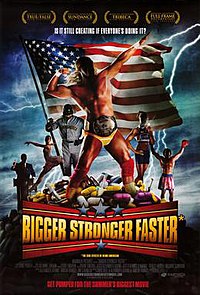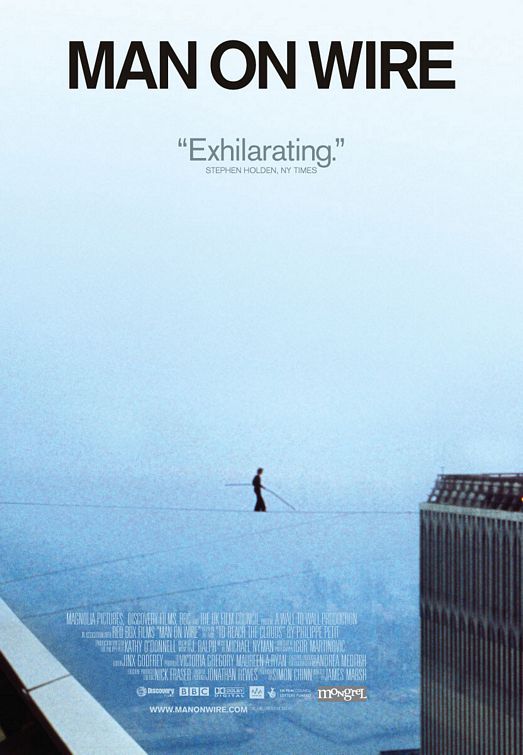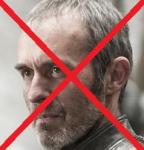Γκουχ...βουρ λοιπόν! Ας ξεκινήσω με μερικές προτάσεις...
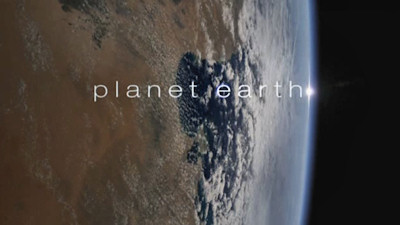
Planet Earth is a multi award-winning 2006 television series produced by the BBC Natural History Unit. Four years in the making, it was the most expensive nature documentary series ever commissioned by the BBC, and also the first to be filmed in high definition.[1] The series was co-produced by the Discovery Channel and NHK in association with CBC, and was described by its makers as "the definitive look at the diversity of our planet". Planet Earth was first broadcast in the United Kingdom on BBC One in March 2006, and premiered one year later in the USA on the Discovery Channel. By June 2007, it had been shown in 130 countries worldwide.[2] The original BBC version was narrated by David Attenborough and produced by Alastair Fothergill. For Discovery, the executive producer was Maureen Lemire, with Sigourney Weaver's voiceover replacing Attenborough.
The series comprises eleven episodes, each of which features a global overview of a different habitat on Earth. At the end of each fifty-minute episode, a ten-minute featurette takes a behind-the-scenes look at the challenges of filming the series
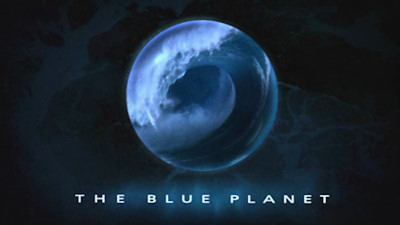
The Blue Planet is a BBC nature documentary series narrated by David Attenborough, first transmitted in the UK from 12 September 2001. Described as "the first ever comprehensive series on the natural history of the world's oceans",[1] each of the eight 50-minute episodes examines a different aspect of marine life. The underwater photography included creatures and behaviour that had previously never been filmed[2].
The series won multiple Emmy and BAFTA TV awards for its music and cinematography[3].
The series was produced in conjunction with the Discovery Channel. The executive producer was Alastair Fothergill and the music was composed by George Fenton.
David Attenborough narrated this series prior to presenting the next in his 'Life' series of programmes, The Life of Mammals (2002), and the same production team created Planet Earth (2006).

Arna's Children is a 2003 Palestinian documentary film directed by Juliano Mer Khamis and Danniel Dannielabout a children's theatre group in Jenin in the Palestinian territories. The film won "Best Documentary Feature" 2004 Tribeca Film Festival.
Arna Mer-Khamis, a Palestinian Jewish woman, was a legendary activist for the rights of the Palestinian people. During the First Intifada she helped establish a children's theatre group in Jenin refugee camp in the West Bank, teaching children, including Zakaria Zubeidi, to express themselves through acting. After her death in 1994, the project was abandoned. Her son Juliano, a well-known actor in Israeli television and the director for the group, filmed Arna working with the children over a 6-year period. Following Arna's death, he returns to the camp to find out what became of the young refugees.
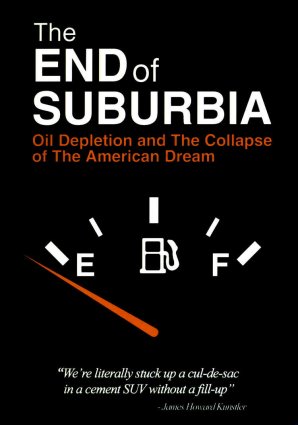
The End of Suburbia: Oil Depletion and the Collapse of The American Dream is a 2004 documentary film concerning peak oil and its implications for the suburban lifestyle, written and directed by Toronto-based filmmaker Gregory Greene. The film is hosted by Canadian broadcaster Barrie Zwicker and features discussions with James Howard Kunstler, Peter Calthorpe, Michael Klare, Richard Heinberg, Matthew Simmons, Michael C. Ruppert, Julian Darley, Colin Campbell, Kenneth Deffeyes, Ali Samsam Bakhtiari and Steve Andrews.
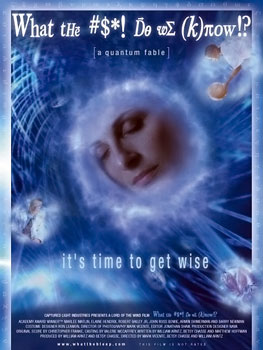
What the Bleep Do We Know!? (also written What tнe #$*! Dө ωΣ (k)πow!? and What the #$*! Do We Know!?) is a 2004 film which combines documentary-style interviews, computer-animated graphics, and a narrative that posits a spiritual connection between quantum physics and consciousness. The plot follows the story of a deaf female photographer; as she encounters emotional and existential obstacles in her life, she comes to consider the idea that individual and group consciousness can influence the material world. Her experiences are offered by the filmmakers as an illustration of the movie's thesis about quantum physics and consciousness. The 2004 cinematic release of the film was followed by a substantially changed, extended DVD version in 2006.
Bleep was conceived and its production funded by William Arntz, who co-directed the film along with Betsy Chasse and Mark Vicente: all of these individuals are students of Ramtha's School of Enlightenment.[1] A moderately low-budget independent production, it was promoted using viral marketing methods and opened in art-house theaters in the western United States, winning several independent film awards before being picked up by a major distributor[2] and eventually grossing over $10 million.[3][4]

Religulous (pronounced /rɨˈlɪdʒʊləs/) is a 2008 American comedy/documentary film written by and starring political comedian Bill Maher and directed by Larry Charles. According to Maher, the title of the film is a portmanteau derived from the words "religion" and "ridiculous"; the documentary examines and satirizes organized religion and religious belief.[2]

Occupation 101: Voice of the Silenced Majority is a 2006 documentary on the Israeli-Palestinian conflict directed by Sufyan Omeish and Abdallah Omeish, and narrated by If Americans Knew founder Alison Weir. The film focuses on the effects of the Israeli occupation of the West Bank and Gaza Strip, and discusses events from the rise of Zionism to the Second Intifada and Israel's unilateral disengagement plan, presenting its perspective through dozens of interviews, questioning the nature of Israeli-American relations — in particular, the Israeli military occupation of the West Bank and Gaza, and the ethics of US monetary involvement. [1] Occupation 101 includes interviews with mostly American and Israeli scholars, religious leaders, humanitarian workers, and NGO representatives — more than half of whom are Jewish — who are critical of the injustices and human rights abuses that stem from Israeli policy in the West Bank, East Jerusalem, and Gaza.

Trinity and Beyond: The Atomic Bomb Movie is a 1995 American documentary film directed by Peter Kuran. It is narrated by William Shatner. Using restored archive footage, the film traces the development of nuclear weapons and their testing, from America's Trinity test of 1945 (hence the title) to the first Chinese atomic bomb test in 1964. Kuran's commentary on the DVD version claims that the DVD replaces some of the original footage with better-quality versions.
Included is footage of nuclear tests starting with the May 1945 trial run to Trinity (the first atomic bomb), a 100 ton TNT blast used to scale and calibrate the Trinity device, and ending with the last U.S. atmospheric nuclear detonation (called Tightrope) of the Nike Hercules air defense missile in 1963. Also included are test series in the South Pacific, and footage of the firing of the U.S. Army's atomic cannon at the Nevada Test Site in 1953, and color images of multi-megaton high altitude air bursts over Johnston Island just before the limited test ban treaty went into effect (banning all except underground detonations) in 1963.
The film's publicity claims that much of the American footage is newly declassified and previously unseen. Kuran's research brought him into contact with many of the cameramen who photographed the American tests, leading to the production of another documentary, Atomic Filmmakers, which featured their reminiscences of working on the program.
The film's music (composed by William Stromberg) was performed by the Moscow Symphony Orchestra, symbolizing the end of the cold war. The score was later used in some trailers for the X-Men movies.

Steal This Film is a film series documenting the movement against intellectual property produced by The League of Noble Peers and released via the BitTorrent peer-to-peer protocol.
Two parts, and one special The Pirate Bay trial edition of the first part, have been released so far, and The League of Noble Peers is working on "Steal this Film - The Movie" and a new project entitled "The Oil of the 21st Century".[2] Boing Boing's Cory Doctorow called it 'an amazing, funny, enraging and inspiring documentary series'.[3]

30 Days was a reality television show on the FX cable network in the United States, created and hosted by Morgan Spurlock. In each episode, Spurlock, or some other person or group of people, spend 30 days immersing themselves in a particular lifestyle with which they are unfamiliar (e.g. working for minimum wage, being in prison, a Christian living as a Muslim etc.), while discussing related social issues. As in Spurlock's film, Super Size Me, there are a number of rules unique to each situation which must be followed during each such experiment. At least one episode each season has featured Spurlock as the person spending the month in the particular lifestyle.
Season one premiered on June 15, 2005, and its respective DVD set was released July 11, 2006. The second season premiered on July 26, 2006. Season 3 of 30 Days premiered on June 3, 2008.[1] FX said on November 6 that it would not be renewing the series for a fourth season, effectively canceling the show.[2]

Future by Design shares the life and far-reaching vision of Jacque Fresco, considered by many to be a modern day Da Vinci. Peer to Einstein and Buckminster Fuller, Jacque is a self-taught futurist who describes himself most often as a "generalist" or multi-disciplinarian -- a student of many inter-related fields. He is a prolific inventor, having spent his entire life (he is now 90 years old) conceiving of and devising inventions on various scales which entail the use of innovative technology. As a futurist, Jacque is not only a conceptualist and a theoretician, but he is also an engineer and a designer. Written by Gazecki, William

Absolute Zero presents the epic story of humanity’s struggle to master extreme cold. This NOVA special recreates groundbreaking discoveries across four centuries that expanded our knowledge of low temperatures and led ultimately to today’s cutting edge “cold technologies.” Its memorable characters range from a 17th century court magician who rigged up a primitive form of air conditioning in Westminster Abbey, to the original Captain Birdseye who invented frozen food. For the first time on television, Absolute Zero tells the gripping story of the decades-long scientific race between two leading chemists to liquefy helium and nitrogen, which opened the door to the modern era of refrigeration and modern air conditioning. Absolute Zero’s final chapter climaxes in a recent Nobel-winning breakthrough, the production of a new form of matter that Albert Einstein predicted would exist within a few billionths of a degree above absolute zero.

Director Jennifer Baichwal followed Edward Burtynsky on a tour of China as he took large-scale photographs of industrial subjects. The film explores Burtynksy's still photography, contextualizing his photographs in the global cycles of energy, production, and waste, by cinematically inhabiting the subjects of his work with the aid of simple, short interviews, sparse narration by Burtynsky, and minimalist / industrial music. While the film clearly serves as a commentary on the impact of large scale industrialization, Burtynsky claims neither to criticize nor praise these developments, but to bring images to viewers in the hopes of opening their eyes to the realities of the contemporary world.

Isle of Flowers (Portuguese: Ilha das Flores) is a 1989 Brazilian short film by Jorge Furtado. It tracks the path of a tomato from garden to dump with the help of a monotone voiceover and a collection of bizarre images. While a very humorous film, the message it delivers about how human beings treat each other is anything but such. The director himself has stated that the film was inspired by the works of Kurt Vonnegut and Alain Resnais, among others.
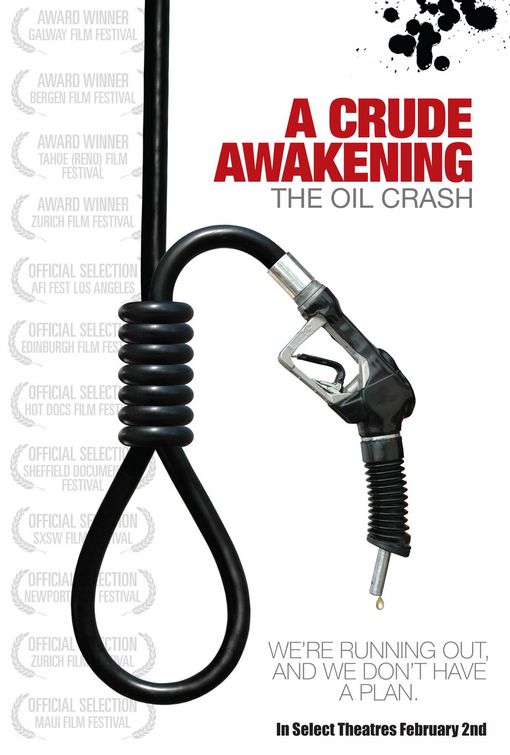
A Crude Awakening: The Oil Crash explores key historical events, data and predictions regarding the global peak in petroleum production through interviews with petroleum geologists, former OPEC officials, energy analysts, politicians, and political analysts. The film contains contemporary footage interspersed with news and commercial footage from the growth heyday of petroleum production. The documentary focuses on information and testimony that supports the projection of a near-term oil production peak.
The documentary examines our dependence on oil, showing how oil is essential for almost every facet of our modern lifestyle, from driving to work to clothing and clean tap water. A Crude Awakening asks the tough question, “What happens when we run out of cheap oil?” Through expert interviews, the film spells out in startling detail the challenges we would face in dealing with the possibility of a world without cheap oil—a world in which it may ultimately take more energy to drill for oil than we can extract from the oil the wells produce.

The Corporation is a 2003 Canadian documentary film written by Joel Bakan, and directed by Mark Achbar and Jennifer Abbott. The documentary is critical of the modern-day corporation, considering it as a class of person and evaluating its behaviour towards society and the world at large as a psychatrist might evaluate an ordinary person. This is explored through specific examples. The Corporation has been displayed worldwide, on television, and via DVD. Bakan wrote the book, The Corporation: The Pathological Pursuit of Profit and Power (ISBN 0-74324-744-2), during the filming of the documentary.
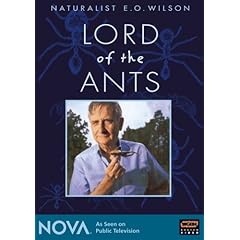
Every so often a giant emerges on the stage of science, someone who transcends the narrow boundaries of a particular line of research and alters our perspective on the world. E.O. Wilson is such a man.

Earthlings is a 2003 multi-award winning documentary[1] written, produced and directed by Shaun Monson and co-produced by Persia White. The film was narrated by Hollywood actor and animal rights activist Joaquin Phoenix. Earthlings also features an original score by musician and activist Moby.
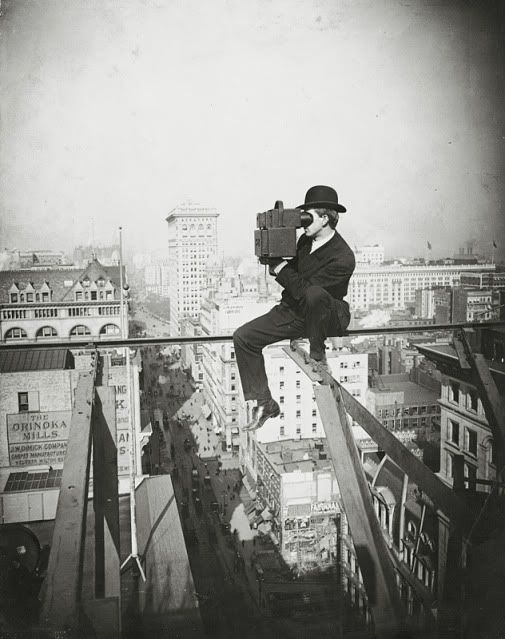
![]()



































